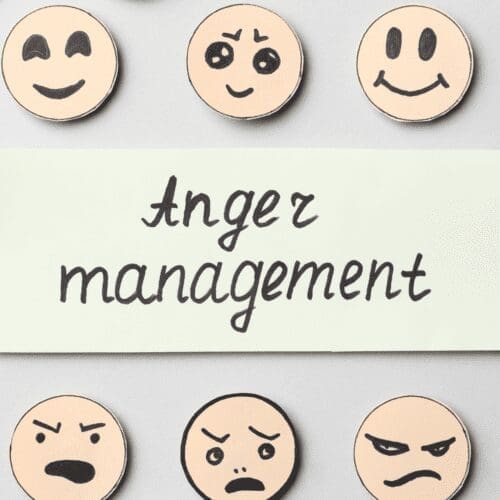Welcome to week one of anger management coping skills. This week we will go over anger logs and how to use them.
If you want to check out our other coping skill series, click here! As always, remember my disclaimer before practicing any mental health information.
What is Anger Management?
These coping skills are techniques and strategies used to deal with and regulate intense emotions, thoughts, and behaviors associated with anger. Anger is a normal and natural emotion, but it can negatively affect your mental and physical health and relationships when it becomes overwhelming.
Some standard practices include:
- Deep breathing and relaxation techniques. This can help calm the body and reduce physical symptoms of anger, such as a racing heart or tightened muscles.
- Mindfulness and meditation. This can help individuals focus on the present moment and become more aware of their thoughts and emotions.
- Cognitive restructuring. This involves reframing negative thoughts and beliefs that can contribute to anger.
- Communication skills. Learning to express anger in a non-threatening and assertive manner can improve relationships and reduce conflicts.
- Physical activity. Engaging in physical activity, such as exercise or sports, can release built-up tension and reduce feelings of anger.
- Time-out. Taking a break from a situation that triggers anger can give you time to calm down and regroup before responding.
Goals
The purpose of the coping skill is to help individuals gain control over their emotions, thoughts, and behavior in situations that trigger anger and to handle conflicts more positively and effectively.
Keep An log
If you have issues controlling your anger, you’re not alone. Keeping an anger log can be a fantastic first step in managing anger effectively. Here’s how it works:
- Get a notebook or use a digital note-taking app.
- Write down each instance of anger as soon as possible after it occurs. This will help you better understand the pattern of your anger.
- Include details such as the date, time, situation, emotions felt, and physical sensations. This will help you identify what triggers your anger and how your body reacts to it.
- Reflect on the patterns and common triggers in your anger log. This will help you gain insights into your anger patterns and how you can better manage them.
- Use this information to come up with healthier ways to cope with anger in the future. This could be anything from taking deep breaths, practicing mindfulness, or seeking professional help.
By keeping an anger log, you can take the first step towards managing anger and improving your quality of life. So give it a try and see how it can help you!
Check out TherapistAid.com for a printable worksheet.



